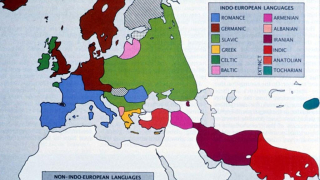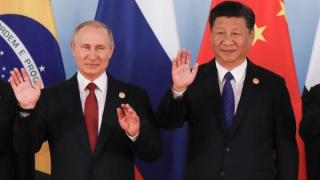Populism and its faces
Populism is a political orientation or viewpoint which refers to the interests and understanding of the entire population ( like hopes and fears ), especially when it represents the contrast of new collective conscience pointed against applicable "status quo" interests of any dominant political sector. Political parties and politicians often use the terms "populist" and "populism" in a derogatory sense, when directed toward their political opponents. That viewpoint sees populism as an orientation which is in empathic relations with the public (often through the rhetoric or unrealistic suggestions), with the goal of increasing the demagogical awareness of the political public. There are more empirical models / variants of populism. Today, they are mostly divided to agrarian and political. Populism was born in 30's and 40's in Argentina and Brasil as an attempt to incorporate the growing working class in the process of political decision-making. It is very present to this day.
During the course of history, 3 types, or models, of populism are visible:
- Historical, national-populism, from 1930's to 1970's .
- Neopopulism, right populism, from the end of 1980's and it lasted 10 years.
- Left populism, demagogic populism, actualized in the 21st century.
Populism is speaking to the "people", against the established structures of power but also the dominant ideas and values of the society. "Populist tactic" is playing the card of simplicity andfondness with the people. There are 4 types of political populism:
- Populist dictatorship (Juan Peron and Argentina),
- Populist democracy (Switzerland),
- Reactionary populism (George Wallace in USA),
- Politician populism (catch-all-party, pоujadism in France or Ross Perot in USA).
However, the fascinating thing, which I will now be dealing with, is the use of the "populist" "tactics" and "demagogy", by those who usually call their opponents with those "derogatory" terms in attempts to discredit their politics, of course, caused by the lack of valid arguments with which they could oppose them. "Populism" is identified as "extremism", "fascism" and other vain platitudes which the left-liberal politicians and political activists "throw" at the evil "right-wingers" nowadays. The gaps are not wide between the "right-winger", "extreme right-winger" and "fascist", which the majority of these politicians somehow “cross”, under media slander and pressure.
This was clearly seen in one of the latest statements of Emanuel Macron, Marin Le Pen's rival in the second round of the french presidential elections, which are held now on Sunday, 6thmay. Emanuel Macron is the founder and the leader of the independent movement called "Forward!" , ex-banker which was never an electoral candidate until now, yet he was economic adviser to the current president François Hollande and after that the Minister of Economy. Macron speaks of himself as an "enemy of nationalism" and a candidate of the "open France which has its interests - those concerning security, economic and social policies", which he wants to defend while "operating in the open world."
However, this candidate, commonly known as an outpost of the global capital and the protector of globalism,despite the description given above, had no trouble saying: "I am pro-European oriented, during the elections I constantly defended the European idea and European policy because I believe that it is all very important for the french people. In the same time, we have to face the situation and listen to the voice of people. The people are furious , impatient and not coming to terms with the EU is no longer sustainable. In this mandate we will consider the need for the EU to be deeply reformed. It is clear that this statement is contradictory. Because, one can either listen to voice of the people, or will continue to be pro-European (pro-EU oriented). Needless to say these two terms, voxpopuli andvox Brussels (voice of the people and the voice of Brussels), are incompatible. So why is it then, that Macron, self-proclaimed opponent of nationalism,is giving such statements, for which he would beaccused of being "too extreme" if he was a right-wing , anti-establishment, anti-EU and anti-NATO candidate? It's simple. To withdraw a part of Le Pen's voters on his side, or those who are undecided. Аll of those politicians who attack their opponents of being "populist" , like to give , before the elections, a few "populist" statements ( more exemplary and similar to those which are otherwise given by those "right populists" , rather than those accusing them ) , to boost their rating and try to trick someone into believing they are not, what they actually are ( outposts of globalism and global capital ) , that is, that they are what they are most certainly not ( candidates of the people, from the people and for the people...). That is exactly the case with Macron now. But, he is not alone in his "right turns", and we can see that in the following two examples:
- As a state secretary in 2012. , Hillary Clinton was a strong supporter of the free trade agreement, also known as TPP ( Trans-Pacific Partnership ) . She, on the other hand, couldn't afford to lose support froma part of the voters in 2016. Therefore, she easily changed her view on this question. Since the variety of syndicates was against the TPP, Hillary's election headquarters claimed that she no longer supports this agreement, which she firmly supported beforehand. And that happened before the elections. Coincidence? And that happened in the period when her rival, current US president Donald Trump, gave very similar statements оn this topic. That is a bit too much coincidental to be acceptable.
- Mark Rutte, Dutch PM , said during the pre-election campaign for the recently held parliamentary elections, a statement which was more expected from his main opponent, Geert Wilders, often frowned upon for being "islamophobic" , "xenophobic" , "racist" and "neo-nazi" ;Rutte said that the people who refuse to accept, and who criticize the dutch values, should behave normally or leave. He added that the Dutch are bothered with those who abuse the freedoms they gain when they come to Netherlands by "assaulting homosexuals, whistle to women in short skirts and call ordinary Dutch racist." He says, in the end, that they should behave properly, or leave Netherlands. If I hadn't mentioned that this is Rutte's statement, who could have said it is his, and not a "light version" of some Wilders’ statement?
In all three cases, and you could find more similar, one axiom-like, clear statement can be seen: if the "populist" candidate / "populist" politics is bad, that doesn't mean that some elements of it ( mostly the key ones ), can't be used for propaganda, pre-election campaign or even "populist" purposes, by those candidates/politicians which have an aversion toward that same "populism" and the same "populists".
I would to conclude with a rephrased quote from the beginning of the Manifesto of the Communist Party:
A spectre is haunting Europe – the spectre of populism. All the powers of globalist Europe have entered a holy alliance to exorcise this spectre: german chancellor and (parting) french president, eurobureaucrats from Brussels and NATO officers, watchdogs, spokespersons and stormtroopers of globalism , global "antifascists", human rights activists and multiculturalists.
In the past, communism flooded mostly the East.
In the future, near and distant, populism will flood the West.














